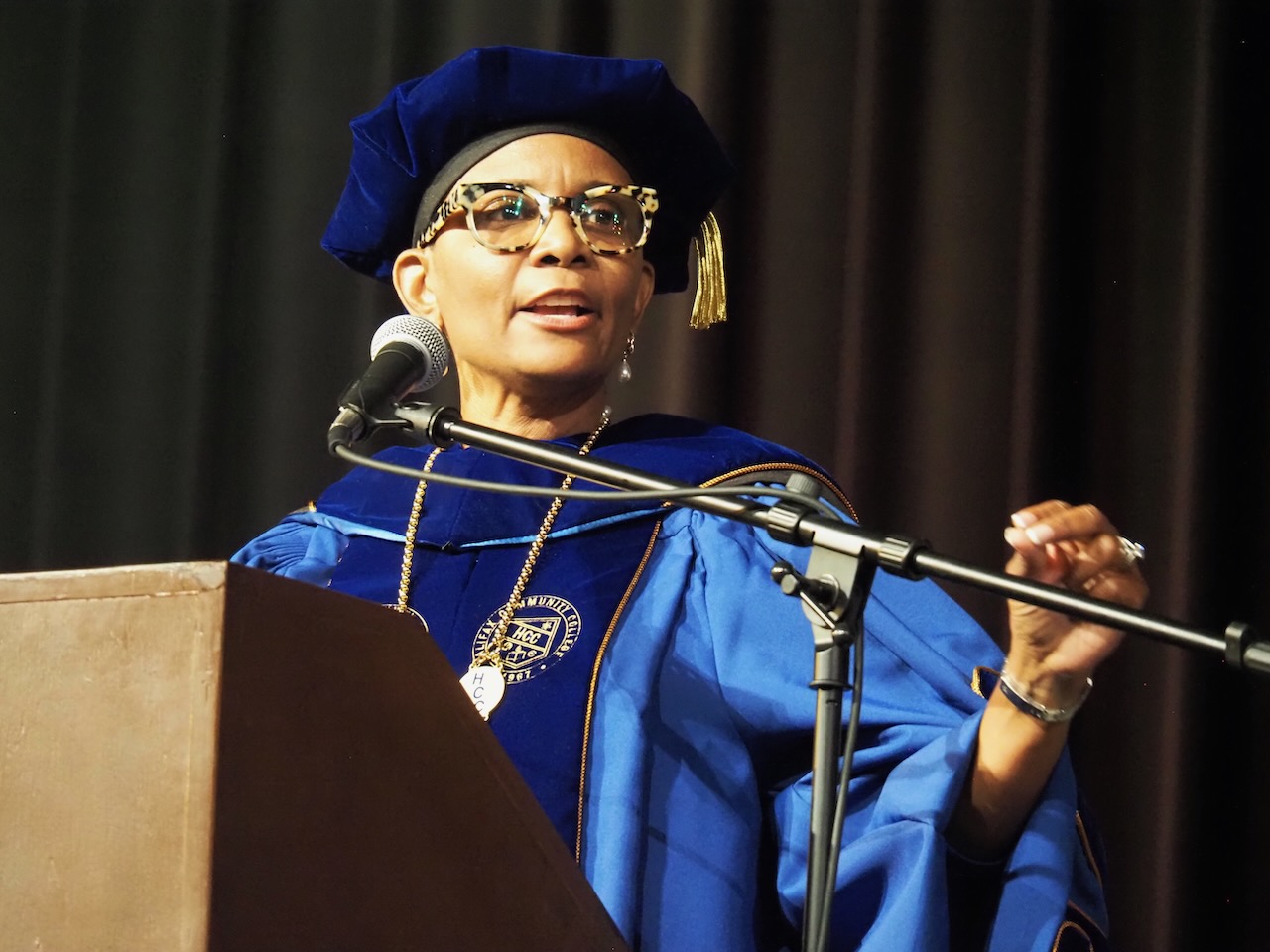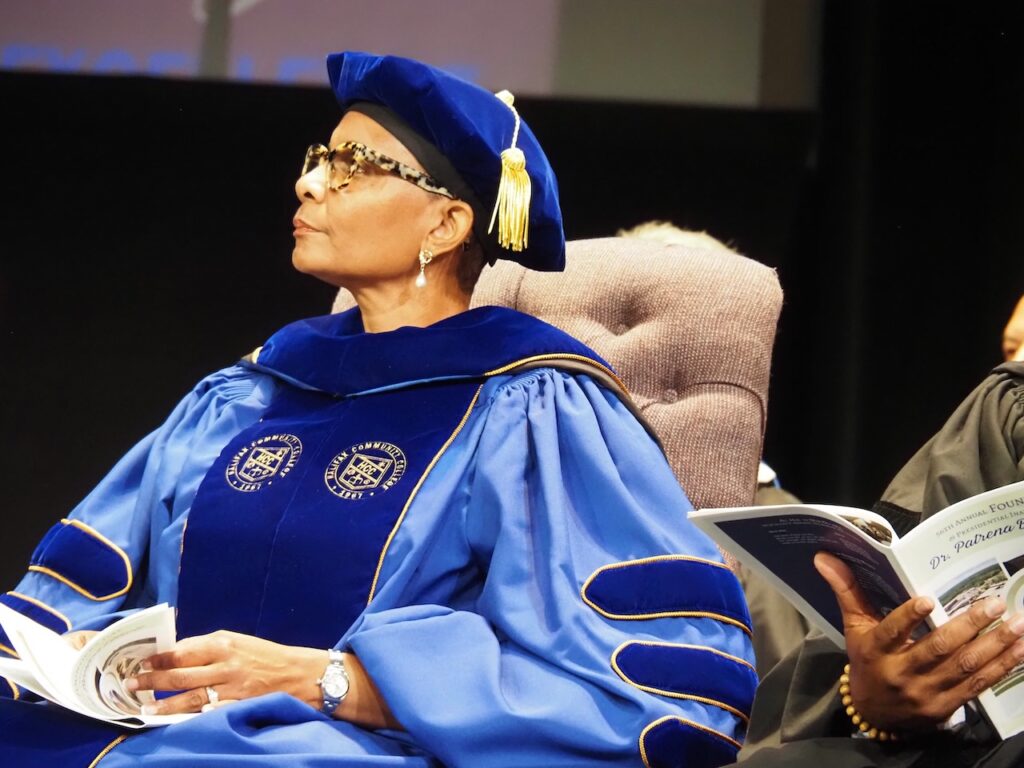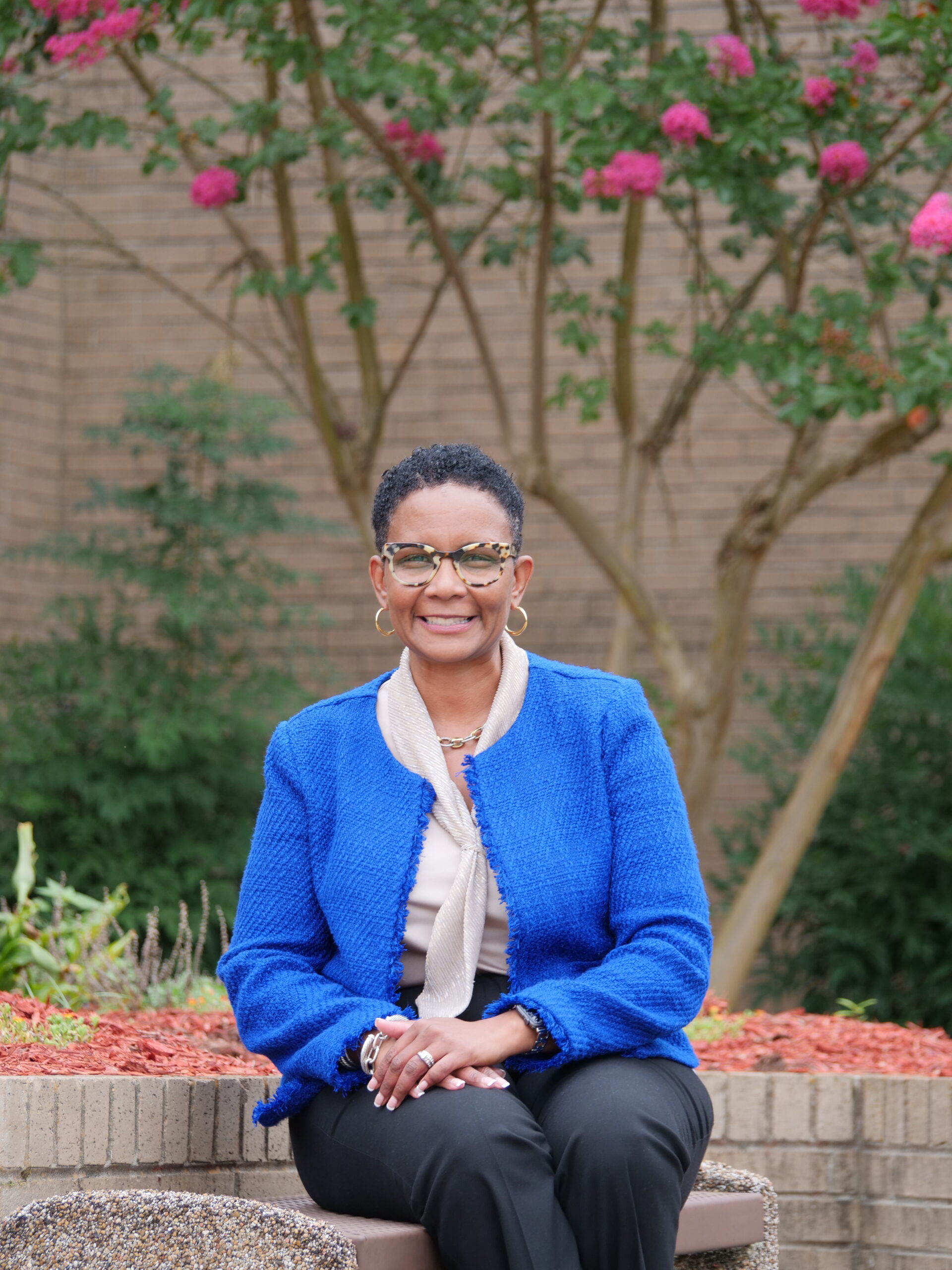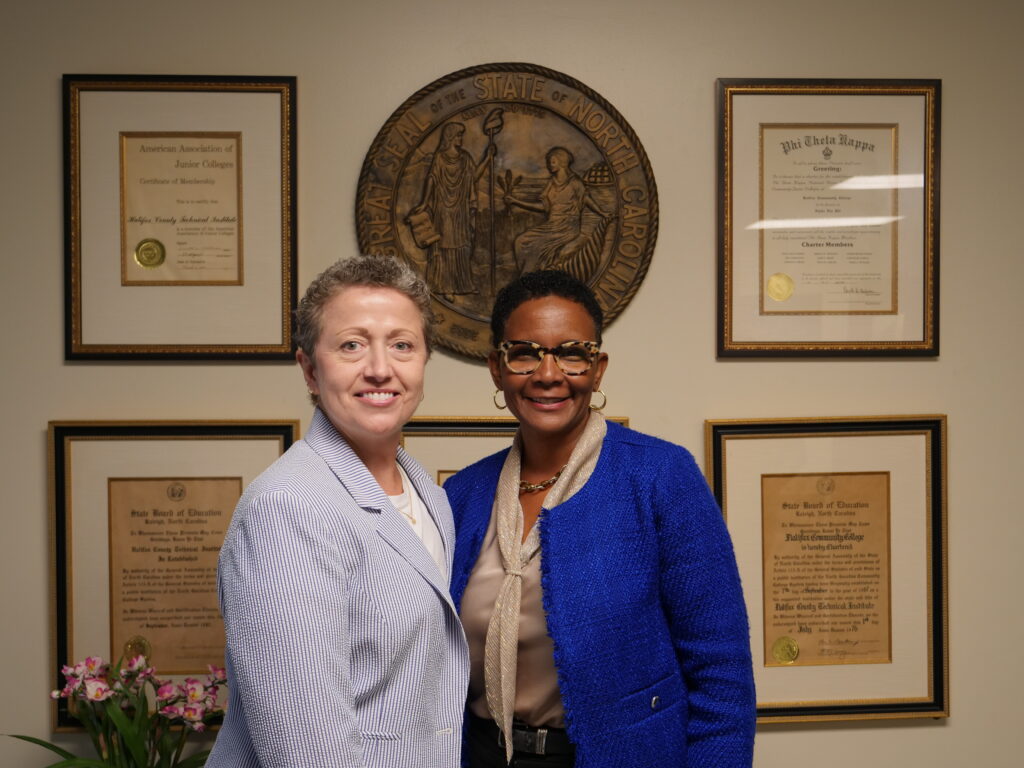
Dr. Patrena B. Elliott
President of Halifax Community College
NCCCS History Project
This profile of Dr. Patrena B. Elliott is a part of the Belk Center for Community College Leadership & Research’s NCCCS History Project. The purpose of the NCCCS Trailblazer Profiles is to highlight and celebrate the work of leaders in the North Carolina Community College System, specifically focusing on current and former community college presidents. This profile is written in conjunction with the collection of an oral history interview with Dr. Elliott that will soon be available in the Southern Oral History Project Archives. The interviews were conducted by members of the Belk Center for Community College Leadership staff in fall 2023. Through these interviews, the Belk Center team hopes to re-center the conversations around who we recognize as important in the history of community college leadership in North Carolina, celebrate the work of our presidents, and inspire support for diversifying the presidential leadership pipeline.
Dr. Patrena Benton Elliott


Looking back on three decades of leadership in higher education,
The Woman Who Raised Me


From her childhood home in Severn, a few miles away from Halifax Community College, Elliott had a view of campus – which provided early exposure to the concept of higher education. That proximity to the college, she explains, played a significant role in putting her on the path she is on today.
“When I was growing up, I could look over and see the college, and I would look at it with wonder. It was one of the first introductions that I had to college – what a college looks like and the understanding that I could go to college one day,” says Elliott. “It was so significant, because in my town, we left because we knew that we had to obtain a higher education – but we didn’t leave because we were desperate to leave. As a matter of fact, sometimes we were hesitant to leave. But my mom always taught me that no matter where you go, you can always come back home.”
Career Advancement

“I met Dr. Kimberly Gold – then president of Robeson Community College – and she afforded me the opportunity to come there,” says Elliott. “It was supposed to be an interim stint, but I fell in love with the campus, with everyone there and with what I was doing and continued on in the role for the next several years. That was really my segue into community college leadership.”
After serving for four years as Robeson Community College’s vice president for instruction and student support services, a new opportunity arose – one that finally brought Elliott back home and to the campus that captured her attention as a young girl.

In 2023, she began her tenure as president of Halifax Community College – bringing with her decades of experience in higher education. But according to Elliott, it was more than an opportunity to come home – it was also an opportunity to walk in the plans God had for her life.
In addition to experience in higher education leadership, Elliott also brought a lifetime of knowledge of the Halifax and Northampton communities to her role.
“I’ve always heard community college leadership talk about how important it is to have an understanding and recognition of the community. But to be able to be someone who’s from here, born and raised, I can personally attest to how significant that is,” Elliott says. “The work that I get to wake up and do every day is personal for me. I truly feel like to whom much is given, much is required. And this community has given me so much.”
As the college’s first Black female leader, president Elliott knows the significance that her position has on the college and community – and understands that her appointment is blazing trails for future community college leaders.
“For my community, I strive to give back just a portion of what has been given to me. And I think that what has been very important to me is demonstrating that anything is possible. They didn’t break the mold with me, and so trailblazing, for me, is demonstrated to our young people – that you can leave the community, but you can come back and make significant contributions no matter where you are,” says Elliott. “So much greatness in mind and character exists in our region, and I just want to continue to open doors and create spaces to show individuals that they can do great things as well.”
Opening doors isn’t just something Elliott advocates for; it’s something she’s committed to doing every day for her students. As a hands-on leader and mentor, she is passionate about working to ensure more equitable student outcomes – both today and in the future.
“Anyone who knows me will probably say that my favorite thing to do is to mentor – it’s at the heart of what I love to do,” says Elliott. “Over the years, I’ve had the chance to impact the lives of individuals all across the country, and here at Halifax, I just hope that my life can be a living testimony as I mentor our students here. And the key is pouring into someone else because so many people have poured into me.”
For Elliott, the chance to pour into individuals in her own backyard – and at an institution that has always held a special place in her heart – is an opportunity she is particularly grateful for. She recognizes how supportive the community is at Halifax Community College, as well as the value that the institution adds for the region – and as president, she is passionate about helping students recognize that, too.
“I want our students to see the college as a beacon of light and hope. I want them to see it as their first choice. Because whether or not they are interested in transitioning to a four-year institution or straight into the workforce, there’s no better place to get prepared than here,” says Elliott. “There’s a nurturing, supportive environment and a sense of community here. And I want them to feel that, because I think it can help them – regardless of the environment they’re going to transition to – we can help to get them there.”